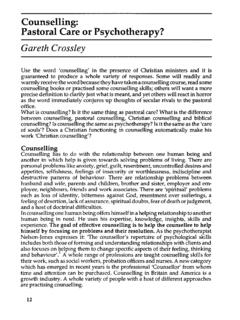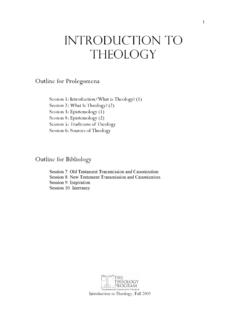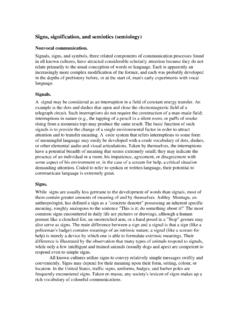Transcription of Liberation Theology: Its Origins And Early Development
1 Liberation theology : Its Origins And Early Development Eddy Muskus The theology of Liberation emerged from the subcontinent of Latin America and from Roman Catholic thinkers. This theology seeks to reflect the problems of millions of people in Latin America, namely, dependency, poverty and injustice. Its advocates aim to eradicate injustice and establish a society which is fair and just: in other words to establish the Kingdom of God. From the perspective of Liberation theologians, the failure of the Church in this respect has been abysmal. Consequently, the choice the Church is making today in opting for the needy and oppressed is a momentous rediscovery. Over five centuries the Roman Catholic Church has sided with those in positions of authority and wealth thus blessing the status quo and thereby impoverishing and enslaving the Latin American peoples. Definition Gustavo Gutierrez, the Peruvian Roman Catholic priest and theologian, defines Liberation theology as a theological reflection based on the Gospel and the experiences of men and women committed to the process of Liberation in this oppressed and exploited sub-continent of Latin America.
2 It is a theological reflection born of shared experience in the effort to abolish the present unjust situation and to build a different society, freer and more The definition is clear: Liberation theology advocates a rereading of the gospel. The Boff brothers write: Every true theology springs from a spirituality - that is, from a true meeting with God in history. Liberation theology was born when faith confronted the injustice done to the poor. By 'poor' we do not really mean the poor individual who knocks on the door asking for alms. We mean a collective poor. The 'popular classes'; the poor are also the workers exploited by the capitali~t system; the under-employed, those pushed aside by the production process. In brief, the theology of Liberation is 'a critical reflection on Christian praxis in the light of the Word' 3; this has become a formula for Liberationists. theology is then a reassessment of the actions of the Church in her pastoral role.
3 Leading Peruvian Evangelical, Samuel Escobar, confirms that Liberationists are not just adding to the traditional way of theologizing but instead they are doing away with it and bringing in an altogether new methodology: The new contribution of Liberation theology would be that she functions as 'critical reflection on praxis'. The contemporary Christian has adopted a certain form'bf action in response to the social and political demands unique to Latin America; this is his praxis. Only after the action, and then reflecting critically 30 on it, is he doing theology of This new way of doing theology is foundational to Liberation theology . Gustavo Gutierrez and Juan Luis Segundo presented this new method for the first time in 1964 at Petropolis, Brazil in a conference led by Ivan Illich. HliSh organised the conference to discuss the pastoral activities of the Church in Latin America. 'At that meeting Gutierrez devfloped the epistemological theme of theology as critical reflection on praxis.
4 ' In a later work, THE POWER OF THE POOR IN HISTORY, Gutierrez confirms: From the beginning the theology of Liberation had two fundamental insights. Not only did they come first chronologically, but they have continued to form the very backbone of this theology . I am referring to its theological method and its perspective of the poor. From the beginning, the theology of Liberation posited that the first act is involvement in the Liberation process, and that theology comes afterward, as a second act. The theological movement is one of critical reflection from within, and upon, concrete historical praxis, in confrontation with the word of the Lord as lived and accepted in faith - a faith that comes to us through manifold, and sometimes ambiguous, historical mediations, but which we are daily remaking and repairing .. The second insight of the theology of Liberation is its decision to work from the viewpoint of the poor - the exploited classes, marginalized ethnic groups, and scorned cultures.
5 This led it to take up the great themes of poverty and the poor in the Bible. As a result the poor appear within this theology as the key to an understanding of the meaning of Liberation and of the meaning of the revelation of a liberating God. This second point, of course, is inseparable from the first. If theology is to be a reflection from within, and upon, praxis it will be important to bear in mind that what is being reflected upon is the praxis of Liberation of the oppressed of this According to Gutierrez, therefore, the Church's mission is the transformation of the social order by a direct involvement in the struggle for Liberation in Latin America. Gustavo Gutierrez in his discussion of the function of the theology of Liberation enumerates several factors which distinctively shaped the historical praxis. He outlines in particular the rediscovery of charity (love) as the centre of the Christian life; the significant evolution of Christian spirituality marked spe-Cially by Ignatian spirituality; the contributions of modern theology in the area of Revelation, in particular its anthropological aspects; the Church becoming a theological locus where Christians participate in social movements; the redis-covery in theology of the eschatological dimension helping to see the centrality of historical praxis.
6 But he also mentions the philosophical origin which underlines the importance of human action as the starting point of all reflection. This is due, he adds, to 'the influence of t~ Marxist thinking centred on praxis, directed to the transformation of the world.' Gutierrez argues that in the confrontation between Christianity and Marxism, there is fertile ground. He says; 'Theological thinking is orientated towards a reflection i~ the sense of the transformation of this world and of the action of man in history.' 31 The definitions offered by Gutierrez and Boff substantially explain the radical new way of doing theology . The viewpoint of the oppressed, in this case the poor, will direct those critical reflections. This will necessitate a constant review of theology as it will be based on the experiences of a particularly defined group. In this sense Liberation theology can be applied to several areas where particular minorities suffer oppression.
7 This application is seen as one observes the other Liberation theologies that have emerged in the past three decades: Black Liberation theology , Feminist Liberation theology , Asian Liberation theology , Jewish Libe-ration theology and Irish Liberation theology . theology is no longer based on the foundation of fixed theological formula-tions but in the ever changing circumstances and experiences of certain Chris-tian groups. The Notion of Development Liberationists advocate the eradication of poverty by removing the economic and political structures of Capitalists which are responsible for the injustice and poverty in Latin America. The achievement of this aim relates to the notion of Development . Gutierrez explains: There has been much discussion recently of Development , of aid to the poor countries .. Attempts to produce Development in the 1950's aroused hopes. But because they did not hit the root of the evil, they failed, and have led to deception, confusion, and frustration.
8 One of the most important causes of this situation is the fact that Development , in its strictly economic, modernising sense, was advanced by international agencies backed by groups that control the economic world. The changes proposed avoided sedulously, therefore, attacking the powerful internati0 IlfI economic interests and those of their natural allies: the national oligarchies. Gutierrez sees the response of developed countries as totally out of touch with the real problem. What is needed is Liberation bfficause it 'is more accurate and conveys better the human side of the problem.,1 The fact that aid comes from nations that are oppressing and exploiting the Third World makes the issue of dependency more acute. It is the task of these poor nations to take their own destiny into their own hands. Gutierrez sees this reality as expressing 'the pro-found meaning of Hegel's dialectic Master-Slave.' 1 He further adds: Liberation .
9 , seems to express better both the hopes of oppressed peoples and the fullness of a view in which man is seen not as a passive element, but as an agent of history .. there are three levels of meaning to the term " Liberation ": the political Hberation of oppressed peoples and social classes; man's Liberation in the course of history; and Liberation from sin as a condition of a life of communion of all men with the Latin America became a dependent colony of the Spanish and Portuguese em-pires five centuries ago and this prolonged dependency must be understood in order to appreciate why Liberation is sought so fervently. Gutierrez gives priority to Liberation in the political, socio-economical spheres of oppressed people. His understanding has been moulded by the plight of this social class. Gutierrez speaks of the need of profound transformation, a social 32 revolution, wlThch will radically and qualitatively change the conditions in which they now live.
10 Liberation theologians are shifting the balance to a more socially involved Church, and they deliberately reduce to a non-priority level and reinter-pret the answers that the gospel offers to the plight of human beings. Violence The definition ofliberation opens the door for justified violence so that the process of Liberation is achieved. The Church has to place herself in this process. Gutierrez maintains: 'The Church's mission is defined Pfpctically, pastorally and theologi-cally in relation to this revolutionary process.' In the process of conscientization actions will be taken against oppressive struc-tures. Those actions may take the form of violence; they are justified as self-defence and are only a response to the first violence committed to human beings, hence the phrase second violence is used. The 1968 Medellin documents, however, teach that this second violence is not acceptable. However, among Liberation Theologians, Camilo Torres was driven to admit that only a violent revolution could change things: "Now the people do not believe in elections.






